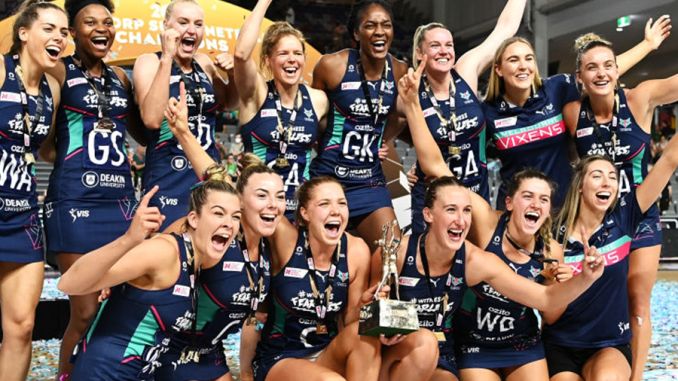
“I was constantly living in fear.”
That’s how former Melbourne Vixens and NSW Swifts netballer Allie Smith felt despite having just won a Suncorp Super Netball premiership.
“When I won a premiership with the Melbourne Vixens, my mental health was at its lowest,” Smith told netball.com.au, adding that her mental health journey was why she started Air It Out.
“From the outside, I looked successful but inside I was empty.
“I was living out the dream that little Ali had always wanted but there was a fear factor.”
Looking back, Smith now knows where her fear stemmed from.
“I wasn’t sitting in the present, it was the feeling of never being certain of what my future looked like,” she said.
“As an athlete, that’s very hard because you don’t really know what your future looks like, but I learned over the years how to be present, how to enjoy who I am and love who I am.
“I was Allie Smith the netballer, not Allie Smith the person.
“But I’ve learned that success doesn’t determine who you are.
For Smith, her struggles with mental health go back as far as she can remember.
“I was always a kid who was athletic, enjoyed sport and was quite confident from the outside but inside that young girl was a super perfectionist and loved to do everything right,” she explained.
“If I wasn’t successful or wasn’t achieving something then I didn’t want to do it.
“That fear of failure or perfectionism is super common; you’re constantly striving for perfection which isn’t really a thing.
“My family and I tell stories of situations I was in that we laugh at it now but at the time was probably me struggling with my mental health and being scared to fail.”
With a strong support network behind her, Smith has been able to overcome the self-criticism and fear she once faced.
Smith delved into how those closest to her have helped through some tough times.
“I have the most amazing family, they’re very open supportive,” she said.
“They created a space for me and were willing to learn.
“Our generation is learning more and more about mental health, the generation above us probably still struggle to speak about it and understand what mental health looks like.
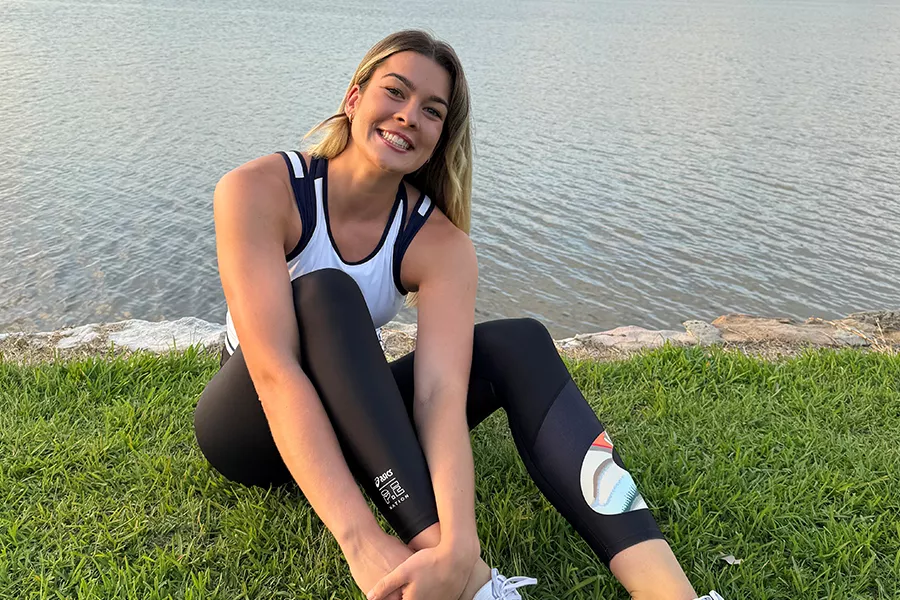
“As a family or someone who’s supporting someone with mental health creating an environment where you listen and are judgment free is important, that’s what my family have done and continue to do.
“But a lot of it came back on me taking that first step and being accountable for my own mental health and future.”
Smith touched on the importance of people taking that first step for themselves.
“It’s super important to first of all understand where it’s coming from and what mental health is doing to you,” she said.
“That’s the first step a lot of people find hard to overcome.
“Sharing your thoughts out loud, whether it be on a piece of paper, a text message, a phone call or sitting down and having a coffee with a friend or a family member is a really powerful way to start understanding the voices in your head and where they come from.
“But it’s also a very scary thing and that’s something I struggled with for so long, actually saying what I was telling myself out loud.”
There’s a stigma around mental health still and Smith believes it’s important that stigma is broken.
“Creating conversation is super important to help break it down,” she said.
“That’s why I think initiative like R U OK? Day and World Mental Health Day are so important.
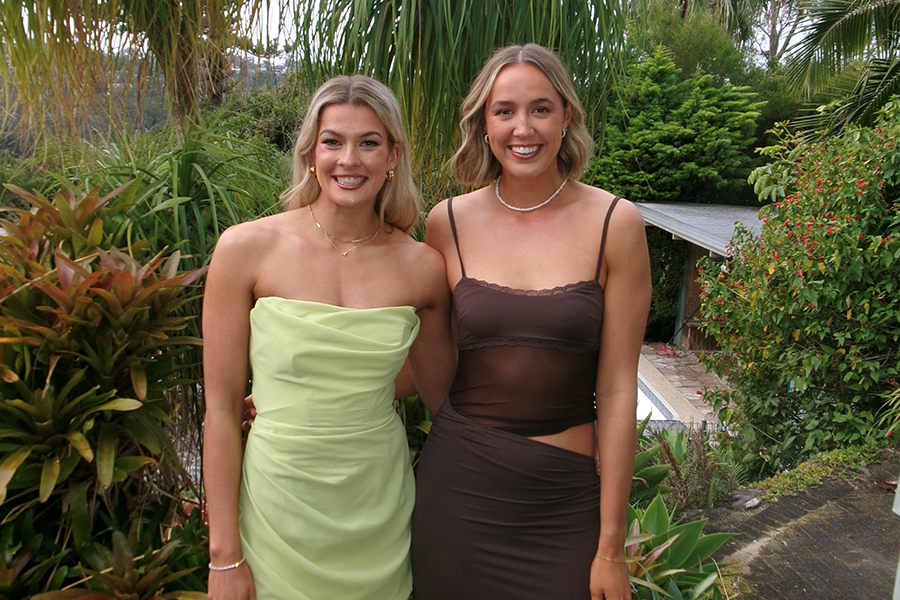
“You don’t necessarily have to have the hard conversation straight away but checking in with your friends every day or every time you see them and asking if they’re okay, how they are or what happened on the weekend is a powerful way to start the conversation.”
With World Mental Health Day coming up Smith reiterated how important it is it exists.
“Mental health comes in many shapes and sizes and it doesn’t matter who you are or what you do or how successful you are,” she said.
“Sometimes life is too much, and you need a hand.
“Mental health conversations don’t always have to be about you struggling or that things aren’t going well, it can be ‘I was struggling, this is how I overcame it’ or ‘you’re not alone, I’m here with you’.
“The movement is not just one day, it should be every day, every time you catch up with someone, mental health doesn’t just come for one day and go away.
“It sticks with people for a long time, a lot of people are on different wavelengths and different journeys with their mental health but we’re all human, we all suffer at times, you’re not alone.”
For Smith sport and exercise were essential to helping her through her mental health struggles alongside her close connections.
But there’s one piece of advice she has for others who may be struggling.
“It’s a pretty bloody scary but seeing a psychologist to get the help that you need,” she said.
“We run through the motions of life whether that be work, sport, school or university and sometimes we don’t check in on ourselves and remember why we’re really doing life.
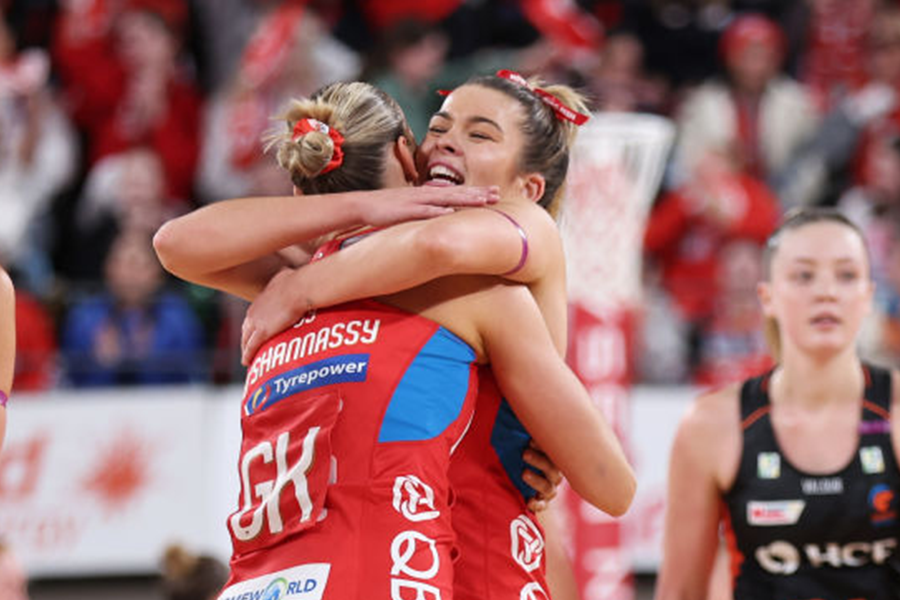
“I got lost and frazzled for a long time figuring out my why and it’s hard to get there but my psychologist helped.
“I’ve been seeing them for four years now and it’s constantly a journey you’re on but taking that leap of faith to speak to people who are trained to help you become the best version of yourself is the biggest, scariest but most rewarding feeling that you can have.”
Having gone through her own struggles with anxiety, negative self-talk and sport, Smith has launched Air it Out to give young people a place to grow confidence, celebrate individuality and feel empowered.
“Having started as a professional netballer, I have a lot of young girls listening and following me,” she said.
“I couldn’t figure out mental health for a long time, it took a few rock bottoms, a lot of tears and my mum and dad supporting me to figure out what was going on.
“I want to be that support for someone else; I’ve been very privileged to have access to the likes of psychologists, sports psychs and culture specialists.
“I know a lot of people don’t have access to that, Air it Out is me sharing my knowledge and what I’ve learned to help people be the best versions of themselves and be someone they can lean on, an older figure who’s been through it and can listen and be that friend you need sometimes when everything’s a bit scary.”
Air It Out has three pillars, the first one being mentorship.
“I have a one-on-one mentorship program with young girls and boys that is tailored to what they need and who they are,” she said.
“I’m not a psychologist, so it’s more of a mentor or life coach to help others get the words out on paper and if a psychologist is needed, we have a referral network in place.
“One of the most powerful things I can do is be open, vulnerable and authentic and that’s what I try to do with Air It Out, it’s a platform to break down the stigma of mental health.”
The second pillar are workshops she runs alongside former teammate Teigan O’Shannasy who is an associate nutritionist.
“One of our workshops is called Fuel for Success where we talk to mostly young athletes, school children and teenagers who are going through puberty and figuring out what they want to do,” Smith said.
“We talk about feeding their body and mind and what that looks like from an athlete point of view.
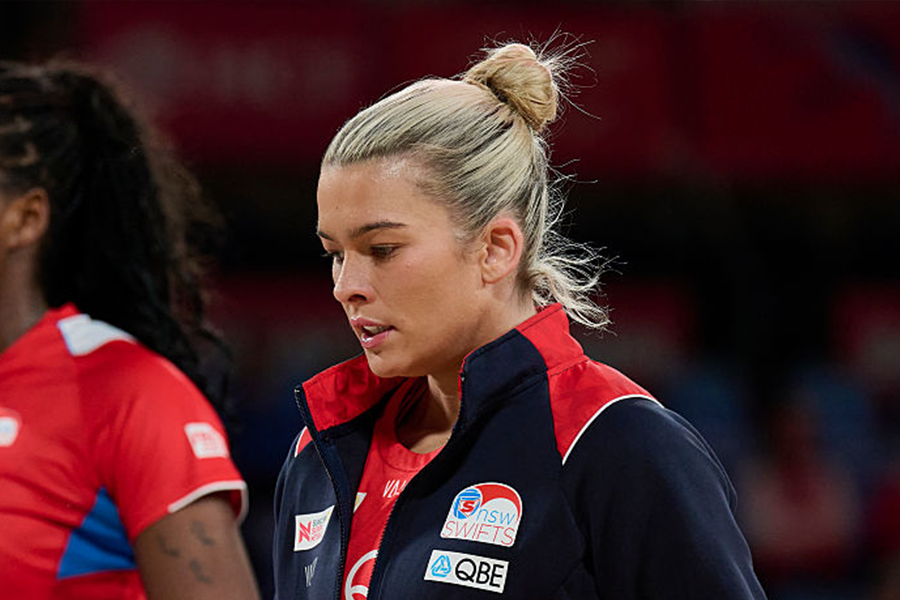
“A lot of people that age are doing a lot of sport and both Tegan and I have gone through phases of under fuelling our bodies and it’s explaining what under fuelling looks like and what that impact can have on your mental health and your body.”
Smith also touched on the last pillar of Air it Out, her own workshop called Own Your Space.
“Own Your Space is mostly about fuelling your brain, I speak to the things I did throughout my career that I wish I learned earlier which have impacted me positively in a huge way,” she said.
“It’s not necessarily all based on sport, it’s mostly putting the mirror up to yourself and figuring out who you are and what you want to do.”
In addition to the workshops, Smith also enjoys keynote speaking.
“I go into schools and corporate organisations to speak about my mental health, my journey of being in a high performing environment while struggling with mental health but also needing to achieve goals and still perform,” she said.
There’s one simple but classic message Smith hopes to pass onto others.
“It’s okay not to be okay,” she said
“You’re not alone but there’s ways you can slowly get back to the version of yourself you aspire to be.”
Smith was recently not offered a new SSN contract with the NSW Swifts but she’s at peace with the club’s decision and has felt supported by those closest to her.
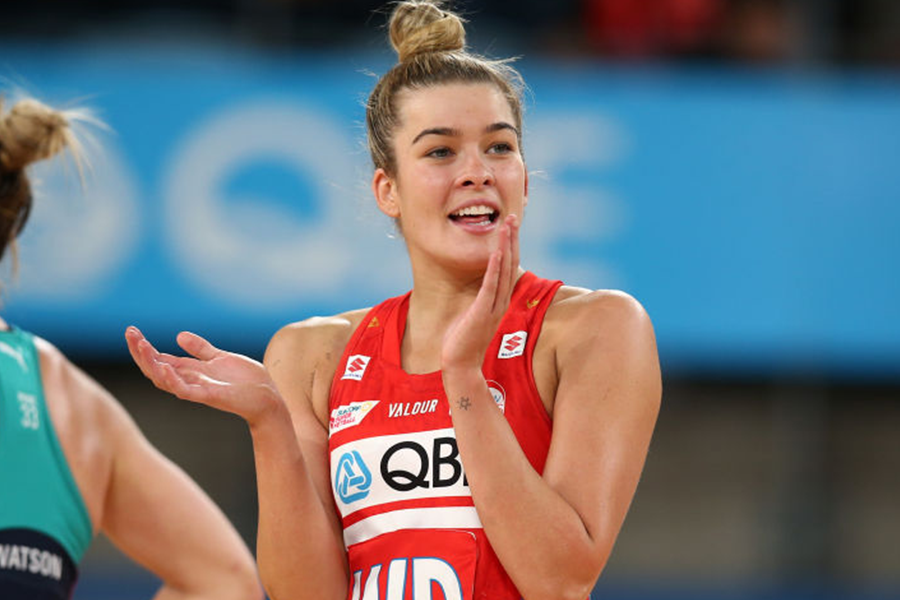
“The decision is a decision that happens in sport, I’m not the first, I’m not the last,” she said.
“It’s something you have to be aware of when you’re a professional athlete, it’s shaped me and proved to me that I’m okay.
“It’s proved the work I’ve done in the last four years really does help when you go through challenges.
The silver lining for Smith is that she hopes she can use her experience to inspire others.
“I’m still standing here today talking about me, who I am and what I do,” she said.
“I did the work to not identify as a netballer, netball is still going to be there, it doesn’t go away.
“If I can inspire young people who potentially don’t get picked in teams or that rep side they thrived to get into.”
“If their goal is to keep going, then that’s great, that’s what resilience looks like to them, but resilience looks a lot different to other people.
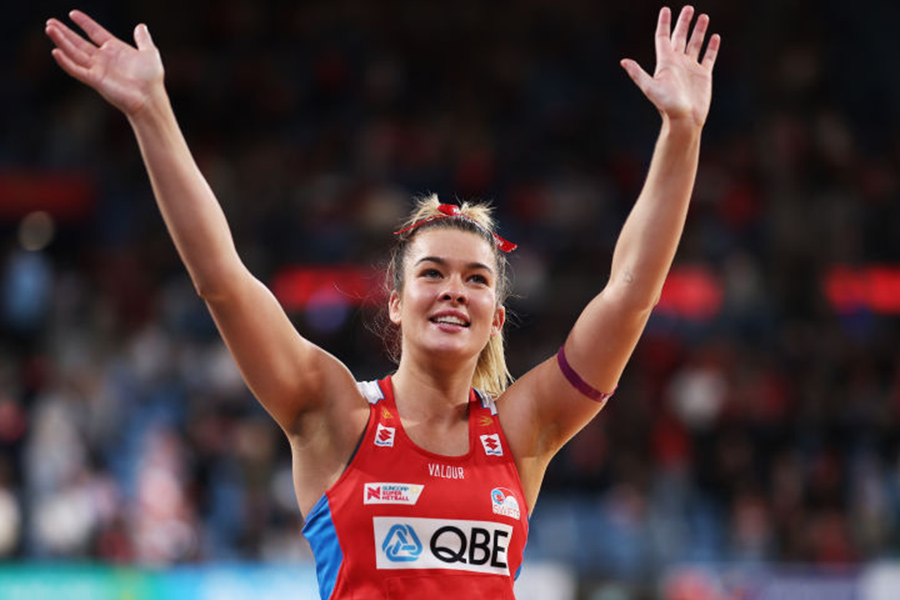
“For me not being offered a new contract proved I’ll be okay no matter what comes my way.”
Leave a Reply